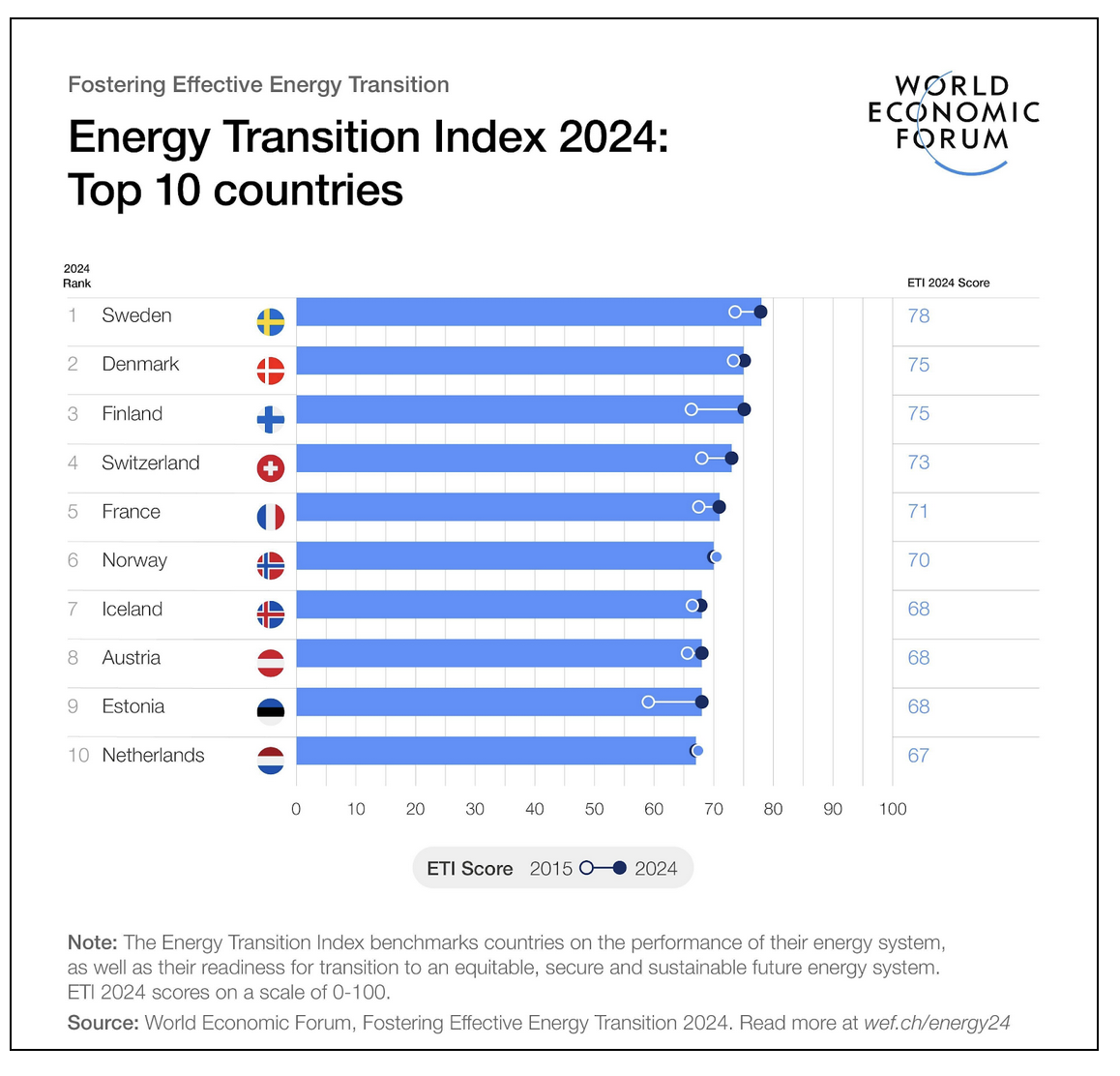News Excerpt:
India has been placed 63rd on the Global Energy Transition Index, published by the World Economic Forum (WEF).
More about News:
- Sweden leads the ranking, with Denmark, Finland, Switzerland, and France completing the top five.
- China holds the 20th position.
- While Energy Transition Index scores have reached a new high, the pace of the transition has slowed in recent years.

What is the Energy Transition Index?
- It tracks progress and preparedness for an equitable, secure and sustainable energy future.
India’s efforts towards energy transition:
- The WEF highlighted India's efforts to utilize energy for income generation and support micro-enterprises through the productive use of renewable energy.
- India's initiatives in energy equity, security, and sustainability were praised by the WEF, noting that these efforts could serve as models for other nations.
- The WEF commended India's achievements in clean energy infrastructure, with renewables and biomass accounting for 42% of its power generation capacity, making it the fourth-largest renewables market in the world.
- India is advancing the adoption of electric vehicles (EVs) and green hydrogen production, with annual investments nearing $10 billion.
- India's per capita emissions are 1.7 tonnes of CO2, significantly lower than the global average of 4.4 tonnes per capita.
Improvement in energy transition:
- 83% of countries regressed in at least one of the three key dimensions of energy system performance—security, equity, and sustainability—compared to the previous year.
- The WEF reported an 8% improvement in Energy Transition Index (ETI) scores over the past decade for emerging and developing Asian nations, including India and China, primarily due to reduced energy intensity.
Role of India and China:
- With India and China comprising about a third of the global population, their role in the global energy landscape is crucial.
- Both countries have made strides in renewable energy development, energy access, and energy security.
- However, heavy dependence on coal in both China and India significantly impacts their emission levels.
Way Forward:
- There is a need to decouple economic growth from energy demand, necessitating substantial investment in energy efficiency for new infrastructure and manufacturing capacity.
- The overall pace has slowed despite 107 out of 120 countries showing progress in their energy transition over the past decade.
- While innovation growth has decelerated, countries like China and India are leading in developing new energy technologies and solutions.
- The report underscores the importance of policy interventions and public awareness to create an environment conducive to energy-efficient infrastructure and retrofitting incentives.
- Developing countries have the opportunity to lead in transforming energy demand through innovative and scalable solutions.
|
World Economic Forum (WEF)
|


